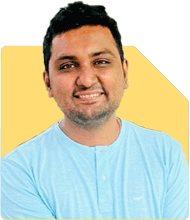Retirement Planning at 55: Single, No Savings - How Can I Survive?
Ramalingam Kalirajan |10893 Answers |Ask -Follow
Mutual Funds, Financial Planning Expert - Answered on Dec 11, 2024
He has an MBA in finance from the University of Madras and is a certified financial planner.
He is the director and chief financial planner at Holistic Investment, a Chennai-based firm that offers financial planning and wealth management advice.... more

Hello, I am 55yrs,Male, Single. Working in Pvt Sector. I have no savings till now for my retirement. How do I survive/ How to plan for my survival after retirement. I dont have any property.
Assessing Your Current Situation
At 55, you have limited time to accumulate a large corpus.
Your private sector job may not provide retirement benefits.
You need to estimate your retirement age. Delaying retirement slightly could help.
Assess your current income and expenses to determine how much you can save monthly.
Setting a Retirement Goal
Define your monthly living expenses during retirement. Consider inflation.
Account for medical expenses and any potential health-related emergencies.
Aim for a retirement corpus that can generate enough monthly income to meet your needs.
Immediate Steps to Take
Start Saving Aggressively: Allocate a significant portion of your income for savings.
Emergency Fund: Create a small emergency fund equal to 3-6 months’ expenses.
Avoid Unnecessary Expenses: Reduce discretionary spending to save more.
Investment Options for Retirement
To maximize your savings potential, invest wisely. Diversify your investments across asset classes.
Mutual Funds: Invest in equity-oriented funds for higher returns over the next 5-10 years.
Choose actively managed funds.
Use a Certified Financial Planner for fund selection and monitoring.
PPF (Public Provident Fund): PPF offers safety and decent tax-free returns.
Consider contributing the maximum permissible amount yearly (Rs. 1.5 lakh).
Debt Mutual Funds: Use these for a portion of your savings for stability and predictable returns.
However, note that gains are taxed as per your tax slab.
National Pension Scheme (NPS): A good option for long-term retirement savings.
It provides market-linked returns and tax benefits under Section 80CCD(1B).
Planning Monthly Retirement Income
Use the accumulated corpus to generate regular income.
Systematic Withdrawal Plan (SWP): In mutual funds, SWP provides steady income post-retirement.
Fixed Deposits: Allocate a portion to bank FDs for secure and predictable income.
Senior Citizen Savings Scheme (SCSS): Invest in SCSS post-retirement for assured returns.
Health and Risk Management
Buy a comprehensive health insurance policy immediately.
It will reduce the risk of high medical expenses.
Consider term insurance for the next 10 years to secure your family in case of emergencies.
Stay Disciplined with Your Plan
Stick to your monthly savings and investment plan.
Avoid impulsive withdrawals or unnecessary investments.
Evaluate Your Progress Annually
Review your portfolio every year with a Certified Financial Planner.
Rebalance your portfolio based on performance and market conditions.
Make necessary adjustments if there are changes in your financial situation.
Income Generation Ideas Post-Retirement
Look for part-time or consultancy opportunities to supplement your income.
Consider teaching, freelancing, or advisory roles in your area of expertise.
Focus on Long-Term Sustainability
Do not rely solely on fixed returns. Ensure part of your portfolio is inflation-adjusted.
Monitor your expenses to avoid overspending.
Avoid Common Pitfalls
Avoid locking funds in low-return investments like traditional savings plans.
Stay clear of speculative investments that promise high returns but carry high risks.
Finally
Starting late may seem challenging, but focused action can help build a secure future. Time is limited, so act now. Begin saving, investing, and planning wisely to ensure financial stability in retirement. A disciplined approach, coupled with expert guidance, will help you achieve your retirement goals.
Best Regards,
K. Ramalingam, MBA, CFP,
Chief Financial Planner,
www.holisticinvestment.in
https://www.youtube.com/@HolisticInvestment
You may like to see similar questions and answers below
Abhishek Shah | Answer |Ask -Follow
HR Expert - Answered on Feb 09, 2023
Ramalingam Kalirajan |10893 Answers |Ask -Follow
Mutual Funds, Financial Planning Expert - Answered on Jul 17, 2024
Ramalingam Kalirajan |10893 Answers |Ask -Follow
Mutual Funds, Financial Planning Expert - Answered on Jul 15, 2024
Ramalingam Kalirajan |10893 Answers |Ask -Follow
Mutual Funds, Financial Planning Expert - Answered on Jan 31, 2025
Ramalingam Kalirajan |10893 Answers |Ask -Follow
Mutual Funds, Financial Planning Expert - Answered on Jul 30, 2025
Ramalingam Kalirajan |10893 Answers |Ask -Follow
Mutual Funds, Financial Planning Expert - Answered on Dec 15, 2025
Ramalingam Kalirajan |10893 Answers |Ask -Follow
Mutual Funds, Financial Planning Expert - Answered on Dec 15, 2025
Radheshyam Zanwar |6746 Answers |Ask -Follow
MHT-CET, IIT-JEE, NEET-UG Expert - Answered on Dec 15, 2025
Ramalingam Kalirajan |10893 Answers |Ask -Follow
Mutual Funds, Financial Planning Expert - Answered on Dec 15, 2025
Ramalingam Kalirajan |10893 Answers |Ask -Follow
Mutual Funds, Financial Planning Expert - Answered on Dec 15, 2025
Ramalingam Kalirajan |10893 Answers |Ask -Follow
Mutual Funds, Financial Planning Expert - Answered on Dec 15, 2025
Samraat Jadhav |2508 Answers |Ask -Follow
Stock Market Expert - Answered on Dec 15, 2025
Ramalingam Kalirajan |10893 Answers |Ask -Follow
Mutual Funds, Financial Planning Expert - Answered on Dec 15, 2025
Reetika Sharma |425 Answers |Ask -Follow
Financial Planner, MF and Insurance Expert - Answered on Dec 15, 2025
Radheshyam Zanwar |6746 Answers |Ask -Follow
MHT-CET, IIT-JEE, NEET-UG Expert - Answered on Dec 15, 2025












.jpg)













